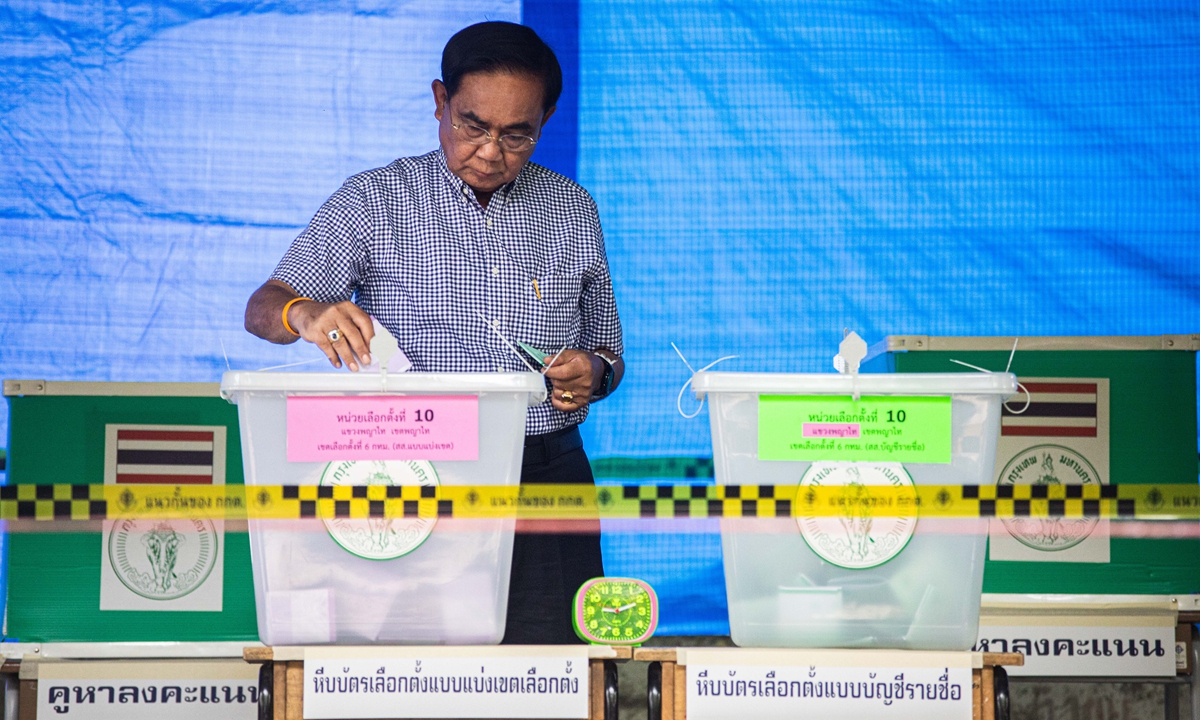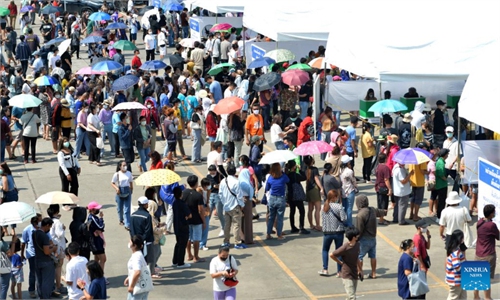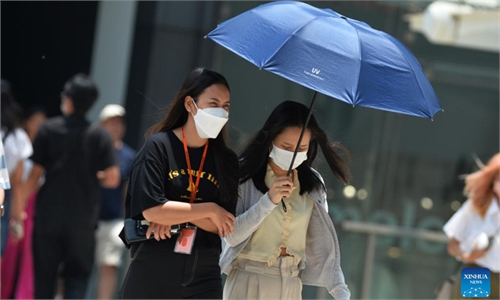Dramatic change in Thai political landscape a result of younger demographic: experts

Thai Prime Minister Prayut Chan-o-cha casts his vote in the Thai General Election on May 14, 2023 in Bangkok, Thailand. Thailand is holding its general elections in a contest that could see the return of political forces allied with former prime minister Thaksin Shinawatra. Photo: VCG
Unofficial vote counting in Thailand’s general election showed opposition parties would secure the majority of seats in the House of Representatives, or the lower house of parliament, according to the country’s Election Commission on Monday. Experts said that this dramatic change in the political landscape is due to the younger demographic structure of voters and changes in political and social trends. But they said no matter who comes to power, China-Thai relations will not be affected.
With more than 99 percent of votes counted, the progressive Move Forward party is projected to win 151 seats, with populist Pheu Thai in second place with 141 seats.
Thailand’s main opposition parties bested other contenders, with virtually all the votes counted from Sunday’s general election, according to Associated Press.
The winner of Sunday’s vote is not assured the right to form the new government. A joint session of the 500-seat House of Representatives will be held with the 250-member Senate in July to select the new prime minister.
The Move Forward party has little chance of forming a cabinet, Xu Liping, director of the Center for Southeast Asian Studies at the Chinese Academy of Social Sciences, told the Global Times. Whichever party comes to power in the future is likely to have to form a coalition, probably a combination of conservative and emerging powers, Xu said.
The main reason for this dramatic change in the political landscape is the younger demographic structure of voters and changes in political and social trends, experts said. In this general election, there were more than 52 million eligible voters, of which over 70 percent were under 40 years old. Young voters are seeking change and demanding political reform, experts pointed out, and the Move Forward Party has proposed several campaign policies aimed at improving the welfare of young voters in response to their reform demands.
However, regardless of the results of the general election, China-Thai relations will not be affected, Ge Hongliang, director of the China-ASEAN Maritime Security Research Center at Guangxi University for Nationalities, told the Global Times on Monday. Although it is true that different governments and leaders may bring about minor adjustments in certain areas, the overall framework of China-Thai cooperation has not changed. “After all, China-Thai relations in all fields, whether in the economy, transportation infrastructure, investment, or the military, are very close,” Ge said.
Moreover, there are great expectations within Thailand for the construction of the China-Thai railway. “Such high-quality Belt and Road Initiative projects allow China-Thai relations to develop steadily. There is still a great deal of potential for cooperation between China and Thailand in cultural exchanges and international tourism cooperation. Therefore, no matter who comes to power, they will understand the importance of consolidating China-Thai relations and its significance to Thailand,” Ge said.
Judging from the current election campaign, it is more about the economy, and this may stimulate the long-term economic and trade cooperation between China and Thailand, Xu said.


